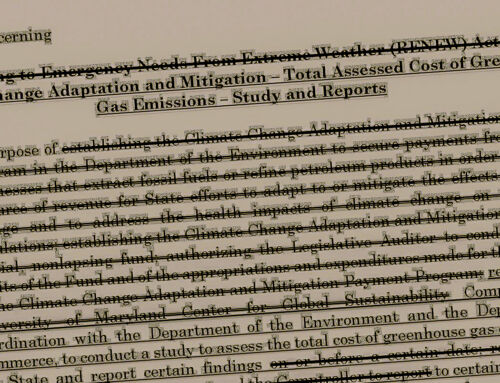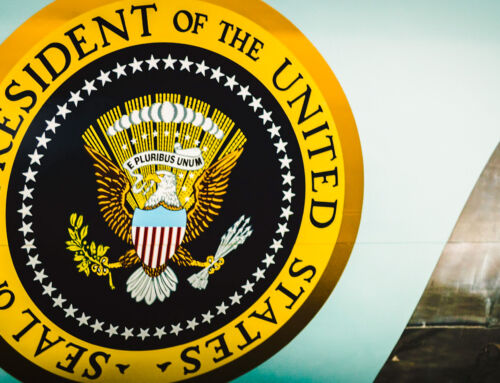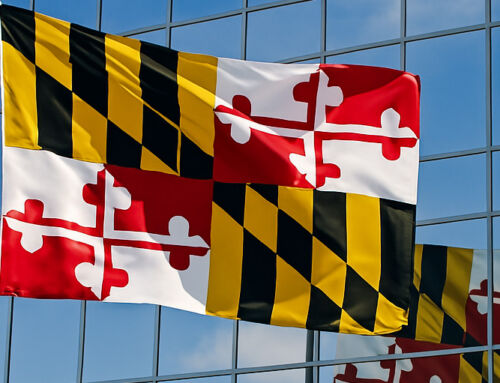View by Topic
Recent Articles
-
New Environmental Laws from the 2025 Maryland Legislative SessionSaturday, April 26th, 2025
-
Migratory Bird Treaty Act Does Not Prohibit Incidental Take – AgainSaturday, April 19th, 2025
-
President Trump’s Bold Step to Rein in State Overreach in Climate ChangeSaturday, April 12th, 2025
-
Mandatory GHG Disclosures in Maryland Real Estate ContractsSaturday, April 5th, 2025
View by Month/Year
“Green Building Law Update” Headlines
Recent Articles & News from
Stuart Kaplow’s blog
at GreenBuildingLawUpdate.com
- BEPS Redux: The Most Far Reaching Environmental Legislation of the 2025 Maryland General Assembly May 4, 2025
- New Environmental Laws from the 2025 Maryland General Assembly Session April 27, 2025
- Migratory Bird Treaty Act Does Not Prohibit Incidental Take – Again April 20, 2025
- President Trump’s Bold Step to Rein in State Overreach in Climate Change April 13, 2025
Subscribe to the Green Building Law Update!
Stuart Kaplow brings his expertise and extensive experience to the table with his unique digital publication, "Green Building Law Update". Subscribers receive regular updates to keep them informed about important issues surrounding Environmental Law, Green Building & Real Estate Law, as well as the emerging demand for Environmental Social Governance (ESG).
Get fresh content through the lense of Stuart Kaplow's cutting-edge expertise, innovative commentary and insider perspective. Don't miss another issue! Subscribe below.

FTC Says Updated Green Guides are Coming
With allegations of greenwashing all but de rigueur, businesses should be on the alert for the soon to be released Federal Trade Commission’s updated Green Guides.
This year companies are being publicly challenged and having their reputations tarnished for greenwashing, in some instances for deceptive misrepresentations, others for unintentionally misleading, and more often than not, just for bad judgment about how consumers might perceive a statement; and all of this heightened by the risk of evolving and emerging government mandated ESG disclosures and enforcement across the globe.
We recently blogged comprehensively about greenwashing in a post describing a European airline sued after action by regulators for greenwashing in its “Fly Responsibly” advertising campaign offering an option to buy carbon offsets, New Greenwashing Case is Troubling to Future of ESG (.. you should read it). Then there is the laundry detergent manufacturer whose televisions ads “tough on stains, kinder to the planet” were banned earlier this year by the UK’s Advertising Standards Agency on greenwashing grounds.
Closer to home, an oil company was all but pilloried on social media when it added solar panels to the canopies of its gas stations and ran mass media campaigns that never mentioned petroleum products. There was a state attorney general who announced an enforcement action when a consumer products company described in a disclosure it had “ambitions” for its packaging to be 100% recyclable or reusable by 2025. Another regulator settled a greenwashing claim against a business with solar panels on their roof when they described the facility as “powered by the sun – a renewal source” because they had sold the RECs.
One of the largest plastic drink bottle users had its “fix up the planet” television ads banned as greenwashing. Then there is the large coffee company that had its reputation tarnished (.. including reportedly its stock price negatively impacted) when it touted its “straw-less lid” as part of its sustainability initiative despite that the new lid contained more plastic than the original lid and straw combination. And there are hundreds if not thousands more claims that are being investigated as possible greenwashing which means business needs to add environmental claims to their list of priorities for risk mitigation.
In an “I’m from the government and I’m here to help” moment, businesses will get some guidance and assistance from the federal government about what they can and cannot say when as part of a regular 10 year review, the FTC releases its updated Green Guides. The Green Guides were first designed to help marketers avoid making environmental claims that mislead consumers, but in the era of mandatory public disclosures about all things ESG and the like, the FTC guidance will have far greater application (i.e., the target audience of the Green Guides is no longer marketers, but now every business making ESG disclosures and the like).
The Commission reiterated last month, in a brief Federal Register announcement, that it will be reviewing and soliciting comments on updated Guides for the Use of Environmental Marketing Claims, 16 CFR Part 260, later this year.
“To ensure its rules and industry guides remain relevant and not unduly burdensome, the Commission reviews them on a ten-year schedule. Each year the Commission publishes its review schedule, with adjustments made in response to public input, changes in the marketplace, and resource demands.”
“When the Commission reviews a rule or guide, it publishes a document in the Federal Register seeking public comment on the continuing need for the rule or guide, as well as the rule’s or guide’s costs and benefits to consumers and businesses. Based on this feedback, the Commission may modify or repeal the rule or guide to address public concerns or changed conditions, or to reduce undue regulatory burden.”
Given the current societal focus on ESG, it is expected the updated Green Guides will provide guardrails for businesses in avoiding unfair and deceptive claims in matters from climate change to net zero (phrases that simply were not in our vernacular in 2012 when Green Guides were last updated). We will incorporate the updated Green Guides into the counsel we offer about ESG disclosures, as soon as the FTC releases more information. And we will blog about it, here ..









